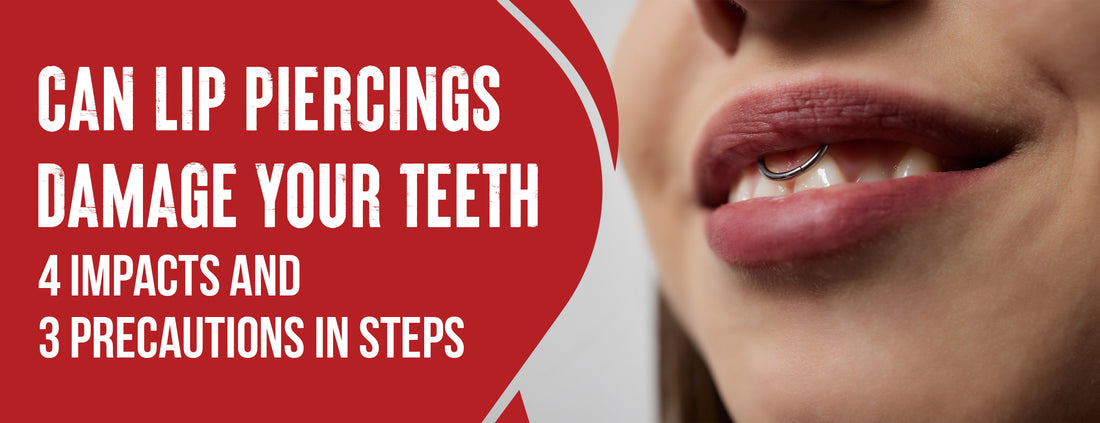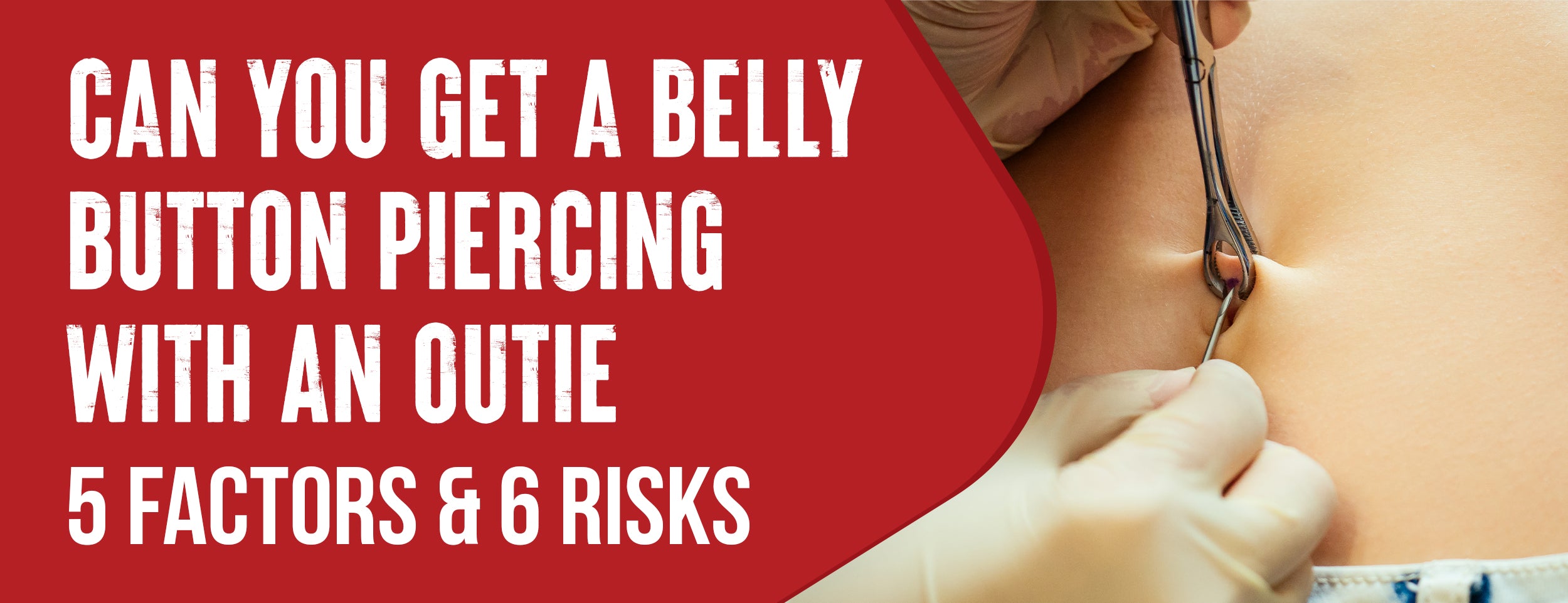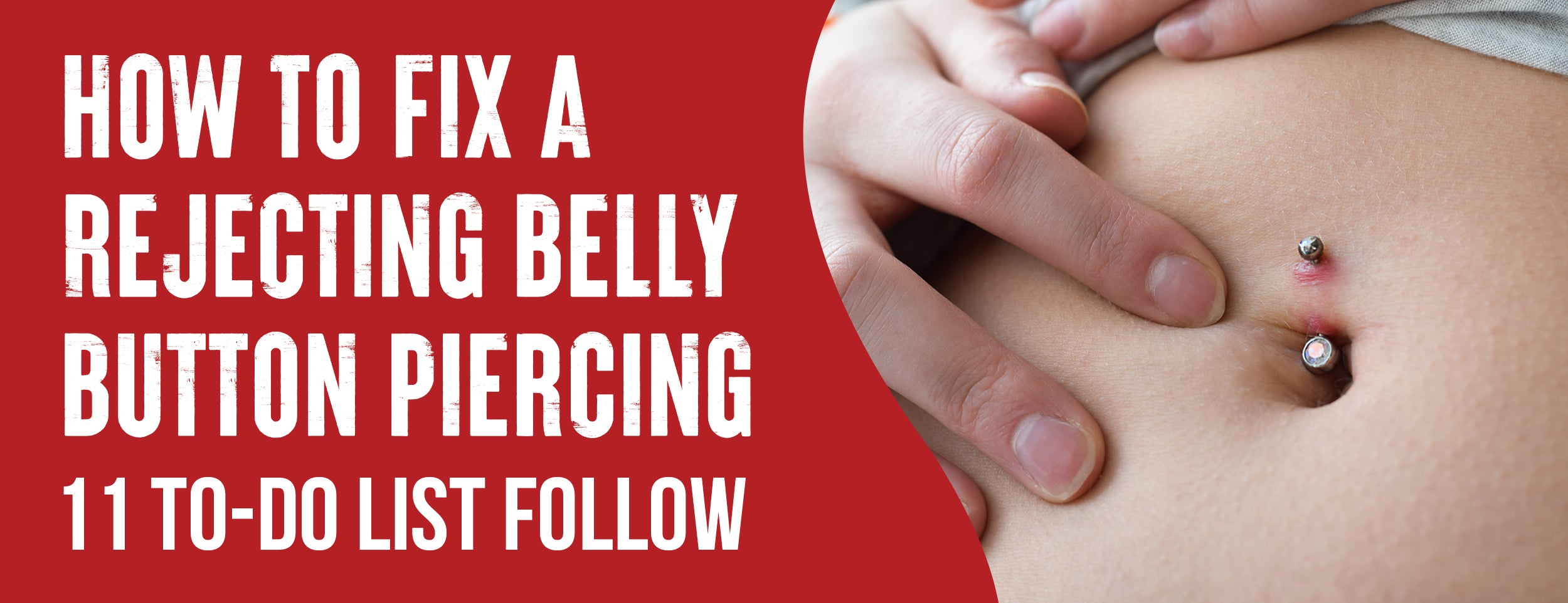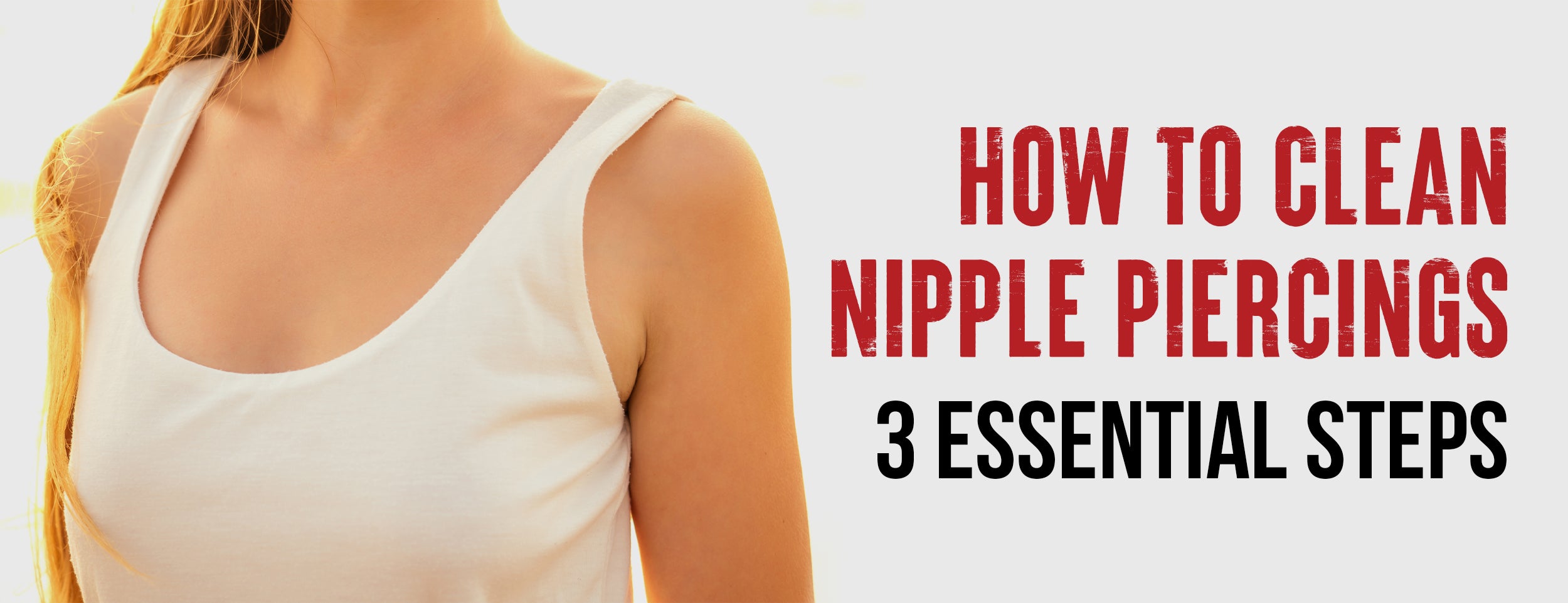Make sure you don't click the jewelry against your teeth, minimize stress on the piercing, and be aware of how it moves when you talk and chew.
Yes, lip piercings can damage teeth. Studies indicate that over 25% of young people with lip piercings have experienced permanent tooth damage. In addition, almost 50% of tongue piercers also suffer tooth damage.
This article will delve into the possible risks associated with lip piercings, provide preventative measures to minimize dental damage and suggest alternatives to traditional lip piercings.
Can Lip Piercings Damage Your Teeth: 4 Impacts
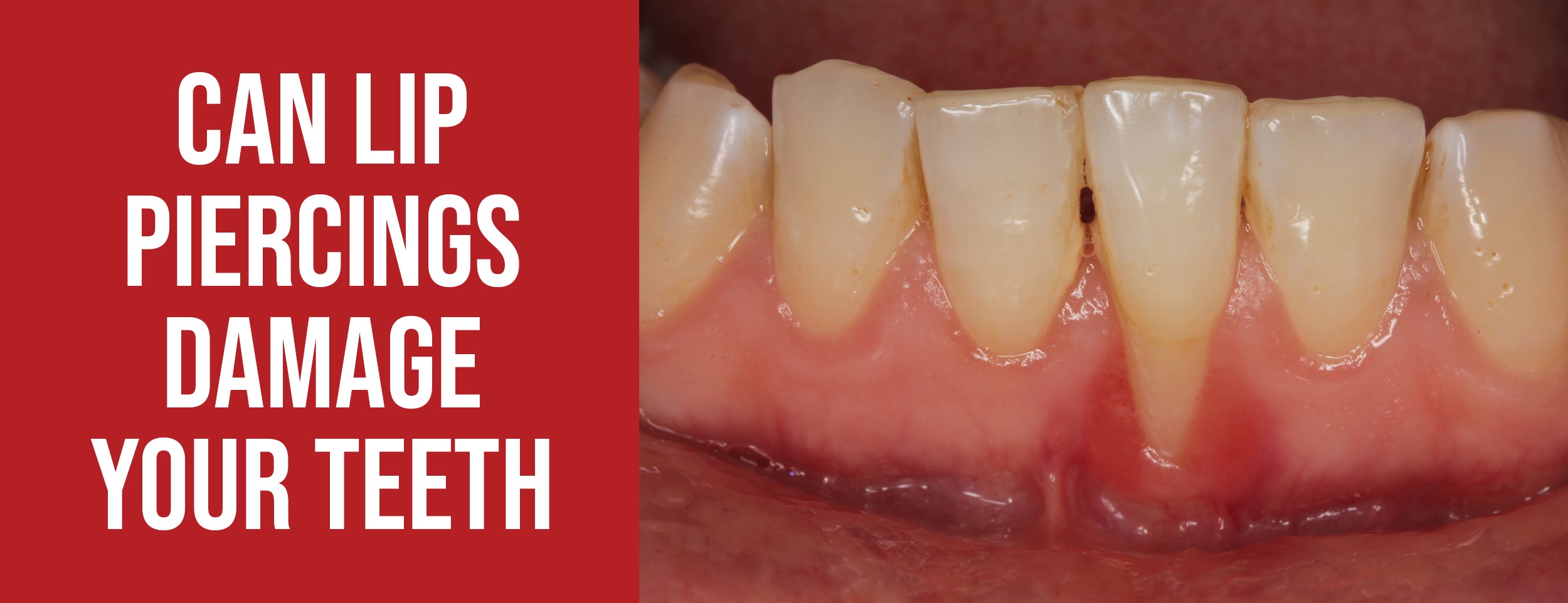
Lip piercings can be a unique way to express your personality. Understanding the potential risks they pose to your oral health is essential. We'll delve into how lip piercings can harm teeth and gums, providing evidence from trusted sources.
Damage to Teeth and Gums
- Chipping or Cracking of Teeth: Lip piercings can cause damage to your teeth in several ways. One common issue is the risk of chipping or cracking your teeth. This can occur when you accidentally bite down on the piercing or if the jewelry knocks against your teeth while speaking or eating.
- Gum Recession and Tissue Damage: The constant rubbing of the jewelry against your gums can result in gum recession, exposing more of the tooth or root. This irritation can also damage tissue, further endangering your oral health.

Risk of Infection and Inflammation
Lip piercings offer a direct route for bacteria to enter your body. This can increase the risk of infection at the piercing site and inflammation within the oral cavity. Hygiene and aftercare are vital to avoiding these complications.
Interference with Oral Hygiene
Maintaining proper oral hygiene can become more challenging with a lip piercing. Tasks like brushing and flossing might become difficult due to the presence of the jewelry, potentially leading to increased plaque buildup and tooth decay.
Speech and Swallowing Issues
Lip piercings can interfere with normal tongue movement or sensation, causing potential issues with speech and swallowing. As you get used to the piercing, these problems usually improve over time, but they can be bothersome initially.
Lip Piercings and Teeth: Tips and Precautions
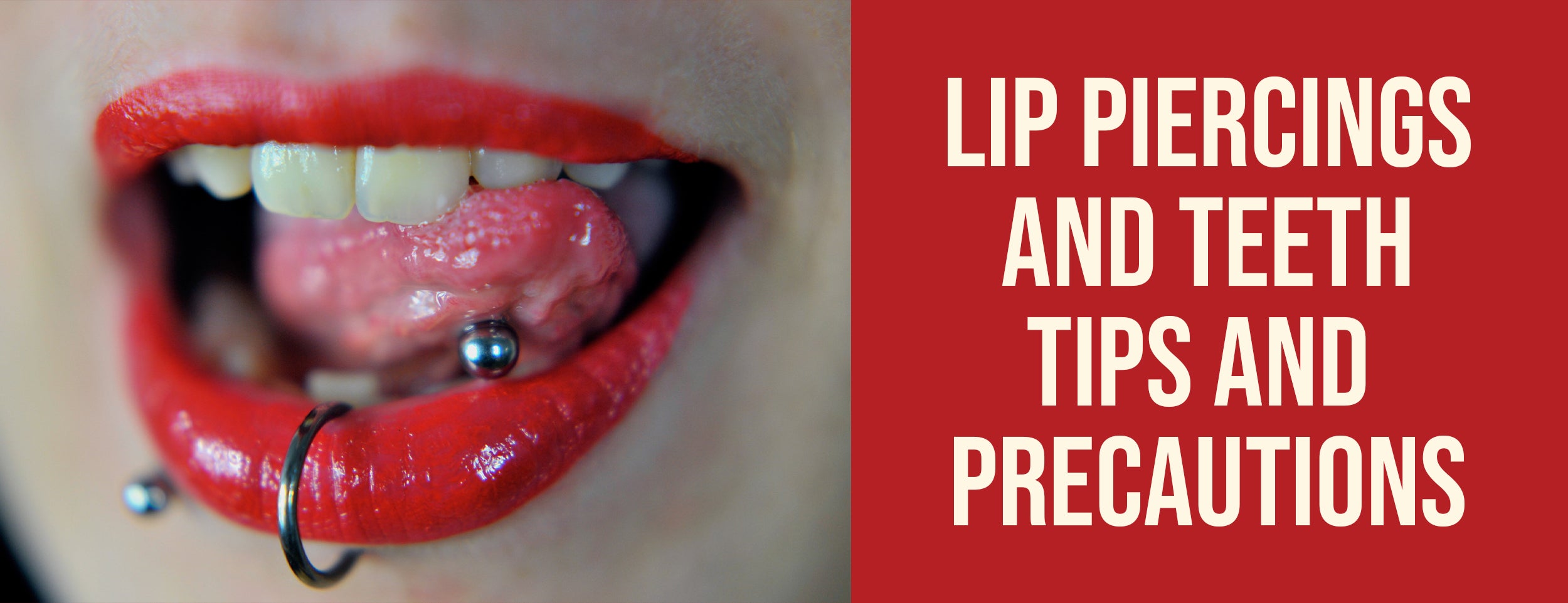
A lip piercing is a big decision that comes with its own set of responsibilities. Here are some tips and precautions to help minimize the impact of a lip piercing on your dental health.
Choosing the Right Materials for Your Piercing
The type of material you choose for your piercing can significantly influence the health of your teeth and gums.
- Quality Matters: Always opt for high-quality, biocompatible materials for piercing and jewelry. It reduces allergic reactions and complications.
- Less is More: Smaller, less intrusive jewelry can reduce contact with your teeth and gums, thus minimizing the risk of abrasion and gum recession.

Maintaining Oral Hygiene with a Lip Piercing
Maintaining good oral hygiene is especially important after a lip piercing.
- Cleanliness is Key: Clean the piercing area daily to prevent infection.
- Be Gentle: Be extra careful while brushing or flossing around the piercing to avoid irritating the area.
Being Mindful of Your Piercing
A little caution can go a long way in preventing dental damage from a lip piercing.
- Watch Your Actions: Be mindful of your jewelry while eating or talking to prevent accidentally biting down on it.
- Stay Alert: Regularly check for signs of infection or irritation, such as redness, swelling, or discomfort. Take any unusual observations to the doctor promptly.
Remember, your oral health is paramount. By taking these steps, you can enjoy lip piercing while caring for your teeth and gums.
Teeth Damage From Lip Piercings: Alternatives and Modifications
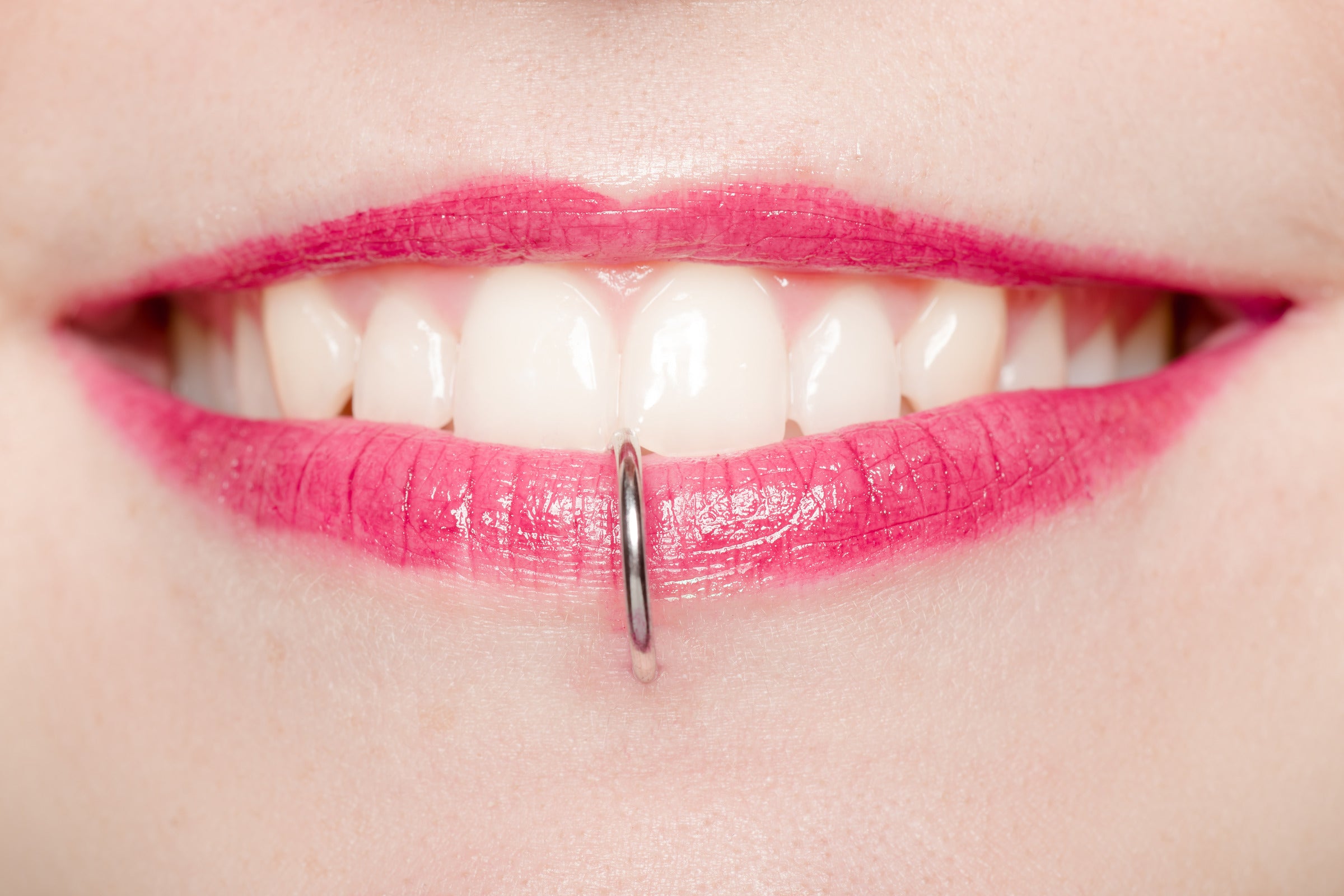
If you're set on getting a lip piercing but worried about the potential damage to your teeth, some alternatives and modifications to traditional lip piercings can help reduce the risk.
Opting for Plastic or Acrylic Jewelry
The type of jewelry you choose can significantly impact your oral health. Using plastic or acrylic jewelry instead of metal can help minimize harm to your teeth and gums. They are softer and more accessible to bite if accidentally bitten.
Vertical Labret Piercing
The placement of your lip piercing can also affect your dental health. A vertical labret piercing (which goes through the lip vertically, from top to bottom) is often considered safer than a horizontal one. This is because it has less contact with the gums and teeth, reducing the risk of damage.

Removing Your Piercing When Not Necessary
Remembering when you wear your piercing can also help protect your oral health. Consider removing your piercing when it's unnecessary or desired, such as eating, sleeping, or playing sports. This can prevent potential damage to your teeth and gums.
Conclusion
To wrap things up, it's clear that while lip piercings can undoubtedly add a dash of style, they don't come without their share of potential hazards. From chipping or cracking your teeth to causing gum recession, tissue damage, and even interfering with your oral hygiene, these trendy adornments can pack a punch.
You can mitigate these risks by opting for high-quality materials, being cautious with your jewelry, maintaining meticulous oral hygiene, and considering alternative options like plastic or acrylic jewelry. If you're considering getting a lip piercing, ensure you consult with a professional piercer and a dentist to understand the risks and benefits.
For those who already have a lip piercing, remember to take good care of your teeth and gums to avoid any complications. After all, your smile is worth protecting.

